- Home
- Muriel Spark
(1958) Robinson Page 16
(1958) Robinson Read online
Page 16
‘Miguel’s religion was not your business,’ he said.
‘True,’ I said, ‘it was yours. But I charge no fee.’
‘Did you do this to revenge yourself in some way? What exactly was your reason? That you wanted to gain influence over the boy? Was it to feed your possessive instincts? Some unconscious urge? Was it—’
‘I see no call to tear myself to bits over motives,‘ I said. ‘They are never simple. I am happy to say I have taught the child the rosary.’
‘What else have you taught him? Have you put something against me into his mind? He has been strange with me since my return.’
‘You are full of suspicions,’ I said.
‘Miguel is not the same,’ he said.
‘If you choose to depart in a sudden shower of blood, leaving him with strangers, he will of course have reservations on your return. It is only to be expected.’
‘He will forget the rosary,’ said Robinson, ‘in time.’
I said, ‘He wants to go to a Catholic school.’
‘You have been really hostile to my intentions,’ Robinson said.
‘In fact,’ I said, ‘it was Jimmie who put the idea into his head.’ This was true. Often, in the course of entertaining Miguel with stories about his schooldays in a priory, Jimmie had advised, ‘Is best to go to a Catholic school. Is more strict and terrible than any other, and in consequence is more delight and joy to infringe the rules.’
‘I shall be glad,’ said Robinson, ‘to see the pomegranate boat.’
On the late afternoon of Sunday, the eighth of August, the pomegranate men spilt ashore. It was strange to see so many people, to hear so many voices, and all talking at once. They were highly intrigued and puzzled by the memorial, which Robinson had refused to let Jimmie dismantle.
I had vaguely imagined that the pomegranate boat would take us aboard and set off with us. Instead, they sent wireless messages, and early next morning three planes circled the island, dipped low, and disappeared. Another plane arrived. Robinson sent up his kite from the flat pastureland of the West Leg, and there, as the plane made to land, Robinson drew it in again, like a fluttering red bird coming wearily to roost.
Robinson handed to Tom Wells a cardboard box which it transpired contained his lucky charms. ‘Thanks a lot,‘ said Wells. He was grinning to right and left. He grimaced at me, ‘I hope we’re going to let bygones be bygones.’ I stooped to stroke the cat.
My journal, which Miguel had retrieved from the tunnel and which was still wrapped in the piece of Robinson’s waterproof, was my only luggage.
Before we left, Robinson asked me if I would like to take the cat home with me. I half thought this was an ironic question, since Bluebell now took hardly any notice of Robinson. But he went on to explain that he would be leaving the island for a few weeks with the pomegranate boat, in order to take Miguel to school. He could not leave the cat on the island, and the pomegranate boat was already equipped with a cat. He would be obliged if I would accept the gift of Bluebell if I didn’t mind waiting for the period of quarantine.
He also gave me a print of the photograph of the stream gushing from the cactus, which he had taken on the mountain.
Chapter XII
I STARED at what Julia was carrying. She became aware of my attention; then, embarrassed by a sudden recollection, tucked it away under her arm. It was my real crocodile leather handbag, left to me by my grandmother.
‘Of course, you understand, your house is up for sale,’ said Agnes.
Curly’s car splashed through the downpour, carrying us from the airport. ‘Take it from me, she doesn’t want to talk business now,’ said Curly.
I sat between Brian and Julia at the back. Julia whispered, ‘We would have had a lot of business trouble with your affairs. I’ve had a lot of trouble with Agnes. It was foolish of you to die intestate. You’d better make a will in case it happens again.’
Brian fairly rocked.
‘What’s the joke back there?’ said Curly.
I said, ‘Julia wants me to make a will.’
‘So you should,’ said Agnes.
‘In the name of God,’ said Curly, ‘can’t you talk about something more cheerful? This is an occasion, it’s an occasion.’
Tom Wells gave the exclusive story to a Sunday paper the following week, whether in his own words or not makes little difference.
What’s it like to be an island castaway? To come face to face with the Alone? … To endure the agony of loneliness, knowing that the folks at home have given up hope?…
A Family Man
Mind you, it was hard work to keep alive. It was a constant contest with Nature and Death…. My one thought was for my wife…. Jan was the only woman among us three men, and naturally there might have been some awkward situations. I’m a family man myself. But I saw to it from the start that the strictest proprieties were observed. Nights, it was oh so lonely …
True Comradeship
Those three months were stark, grim, challenging, but I wouldn’t have missed them for worlds. I never knew what true comradeship was till I lived on that island. Everyone pulled his or her weight….
That Lucky Charm….
I happened to have on me a lucky charm, just a tiny metal object of ancient Druid design. It’s my firm conviction that I owe it to that lucky charm….
We never had a moment’s disagreement….
Of course, it was a strain on Jan’s nerves, but she was a brick….
Would that I were, I thought, and I would hurl myself at his fat head.
I was staying with Julia and Curly until my house should be put to rights again. I wondered how ever I could have thought of Tom Wells bearing any likeness to Curly. And the facial resemblance now seemed to me superficial — Curly had a way of opening out his face expectantly to the world, which might be difficult to live with all the time, but differed from Tom Wells’ open-mouthed regard, so like that of a dew-lapped dog forever wanting a drink.
‘I suppose you’ll want to sleep late in the mornings? ‘Julia had enquired dolefully.
‘Naturally, naturally,’ said Curly. ‘After what she’s been through she’s got to take it easy.’
And when he paddled upstairs with my breakfast tray every morning, and when I heard his voice at the street door discouraging the reporters with terse unprintable phrases, I thought him the kindest of all my relatives.
‘Alas, is never that I have luck with the English ladies,’ Jimmie had said while we waited for our separate planes in the hotel at Lisbon. ‘In the time of the end of the hostilities I have fallen in love with an English lady who is driving the car of a colonel in France. This lady is of noble blood, and she has declared to me, “I am not yet old enough to marry without the permission of my pa, but I go on leave to my home and I tell of you to pa. Mayhaps he should desire to meet you, and lo! he shall permit the marriage.” Now I say to this lady, “What is about the ma?” and she has replied, “Ma has married to another; is necessary only to fix pa.” Alas, then this lady departs to England, and she is writing to me most woeful because the faulty old pa has the plan for his daughter to marry a great lord or mayhaps an American. Then lo! I have a visitor. Is the brother of my lady love, a captain of the English Army. He has declared to me, “Behold, is five hundred pounds, and you bloody well lay off the girl.”’
Jimmie sat back in his chair and despondently sipped his brandy and soda. ‘Is never any luck with English girls. Is my destiny,’ he concluded.
‘What happened about this girl? Did you see her again?’
‘Never. From that day I cease to write letters to that lady.’
‘Did you refuse the five hundred?’
‘No, no; on the contrary, I settle for six hundred and fifty. This cash is necessary for my expenses along about that time.’
‘Many a man,’ I said admiringly, ‘would have taken the money and the girl.’
‘Is to go too far. I am a man of honour,’ said Jimmie, ‘wherefore is mayhaps the
reason that I do not have luck with English ladies.’
‘I should think,’ said Ian Brodie, ‘you were in your element with three men dancing round you, and no other woman around.’
‘It was delightful,’ I said.
‘Nice chaps, were they?’
‘Charming.’
‘This Robinson seems a peculiar sort, living like that on an island. I don’t like the sound of him.’
‘He was delightful,’ I said.
‘Oh, was he?’
‘Yes, charming.’
‘There was a young boy. Supposed to be adopted.’
‘Yes, charming.’
‘It must have been awkward, all living together like that.’
‘It was delightful,’ I said, ‘it was charming.’
‘Well,’ he said, ‘it’s rather embarrassing for me, you know, when people ask what happened.’
‘Don’t they read the papers?’
‘There’s always a lot more behind these things —people want to know what really happened.’
‘Oh, it was really, tell them, all delightful and charming.’
‘What I can’t understand is why Brian preferred to stay with the Lonsdales….’
Gradually most of my possessions were returned to me. Sometimes I wonder what happened to my six pairs of nylons. Agnes returned two pairs of gloves. Ian Brodie had already sold some of my books.
Green-eyed Bluebell came out of quarantine within six months. After the first two lessons her memory of ping-pong returned. By this time I was once more settled in Chelsea.
One day, when Brian was telling me how news of the plane crash had arrived, and how, after a week, we were despaired of, he remarked, with his slightly alarming sophistication, ‘It’s difficult for the young, those without experience of life, to realise death.’
In the autumn of 1955 I read, under the title ‘Island Man in Dock’, the case of Tom Wells which was heard at the Old Bailey. He was described as the director of Luck Unlimited Ltd., a firm of wholesalers dealing in lucky charms and medals, and as proprietor of the monthly magazine Your Future. Charged with uttering letters of blackmail against an unnamed couple, he pleaded guilty, and asked for twenty-three other charges to be taken into consideration. Plus two more, I thought.
The defending counsel recalled that Mr. Wells had undergone a severe nervous strain after a plane crash in which he had sustained serious injuries, and was subsequently exiled on a desert island, where, for three months, he endured pain, hunger and thirst. Mr. Wells’ business affairs had suffered a severe set-back during his absence and since his return he had also had domestic troubles. Throughout the past twenty years, and in the course of his editorship of Your Future, involving a large correspondence of an intimate nature, Mr. Wells had given valuable advice and brought comfort to many thousands. Bearing these factors in mind, it was hoped that a lenient view would be taken of Mr. Wells having yielded to the more than usual temptations with which his work presented him.
The prosecution said it was one of the nastiest cases ever to come before those courts. ‘In any sense— nasty.‘ Over a period of ten years—stretching back, that was, to a period long preceding his escape from the plane disaster — the accused had been extorting money from men and women who had, in their innocence, confided their most cherished secrets, the deepest anguish of their souls, to Wells. Operating under the name of Dr. Benignus, Wells had solicited such confidences through the columns of his paper. The court would agree that benign was the very last word one could apply….
He got seven years. Two of his associates, a woman secretary charged with aiding and abetting, and a man, said to be in the pay of Wells, charged with trespassing with intent to intimidate, got three and five years respectively.
I supposed that only Miguel would be sorry.
Next spring I learned from a news paragraph in an evening paper that the island was sinking.
‘Robinson’, the tiny man-shaped Atlantic island owned by the recluse Mr. M. M. Robinson, is sinking, say experts.
Within three years, it is estimated, the topmost point of the 3,000-ft. mountain will disappear under the sea. Already the sea level has risen over twenty feet, and a strip of white beach on the south coast, which was the pride of the island, is now under water. The event is explained by volcanic action.
Mr. Robinson is already making plans for evacuation. It will be recalled that a plane bound for the Azores crashed on ‘Robinson‘ in May 1954, the survivors of which …
In a sense I had already come to think of the island as a place of the mind. I opened up once more the blue exercise book wrapped in the square from Robinson’s waterproof, still smelling so of sulphur that for a moment I was crawling again in the cave with the parcel between my teeth.
It is now, indeed, an apocryphal island. It may be a trick of the mind to sink one’s past fear and exasperation in the waters of memory; it may be a truth of the mind.
From time to time since I read this news I have pictured Robinson wearily moving his possessions on to some boat bound for some other isolation. I have thought greedily of the books. And of Miguel, wondering if they think him backward at his school in Lisbon.
And now, perhaps it is because the island is passing out of sight that it rises so high in my thoughts. Even while the journal brings before me the events of which I have written, they are transformed, there is undoubtedly a sea-change, so that the island resembles a locality of childhood, both dangerous and lyrical. I have impressions of the island of which I have not told you, and could not entirely if I had a hundred tongues — the mustard field staring at me with its yellow eye, the blue and green lake seeing in me a hard turquoise stone, the goat’s blood observing me red, guilty, all red. And sometimes when I am walking down the King’s Road or sipping my espresso in the morning — feeling, not old exactly, but fusty and adult — and chance to remember the island, immediately all things are possible.
THE END

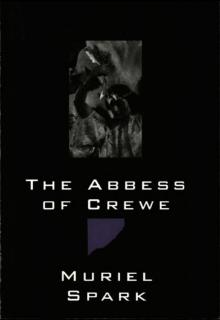 The Abbess of Crewe: A Modern Morality Tale
The Abbess of Crewe: A Modern Morality Tale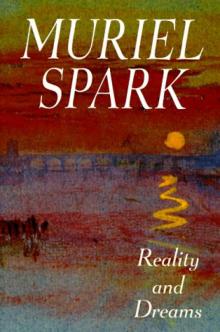 Reality and Dreams
Reality and Dreams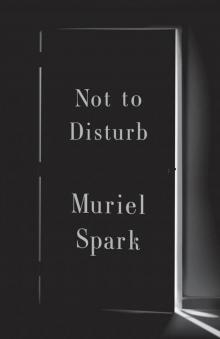 Not to Disturb
Not to Disturb The Prime of Miss Jean Brodie
The Prime of Miss Jean Brodie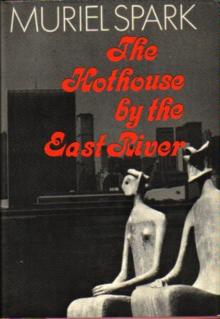 The Hothouse by the East River
The Hothouse by the East River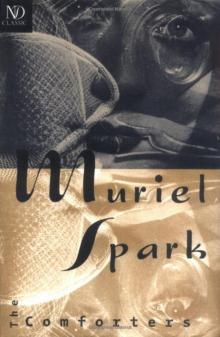 The Comforters
The Comforters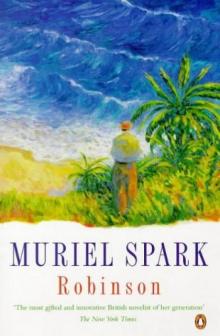 (1958) Robinson
(1958) Robinson Unknown
Unknown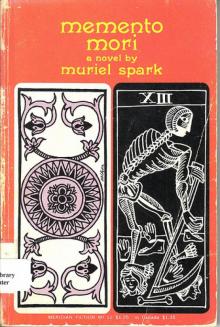 Memento Mori
Memento Mori The Finishing School
The Finishing School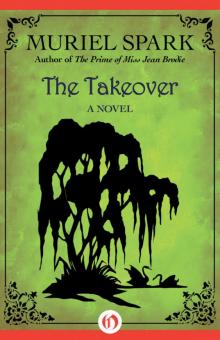 The Takeover
The Takeover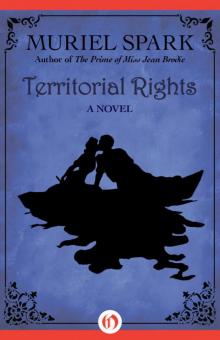 Territorial Rights
Territorial Rights The Complete Short Stories
The Complete Short Stories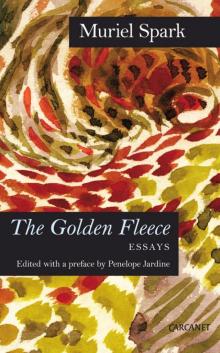 The Golden Fleece: Essays
The Golden Fleece: Essays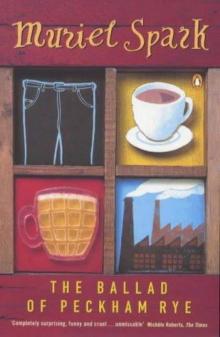 The Ballad of Peckham Rye
The Ballad of Peckham Rye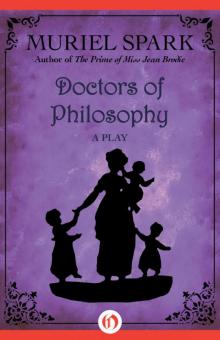 Doctors of Philosophy: A Play
Doctors of Philosophy: A Play The Mandelbaum Gate
The Mandelbaum Gate Loitering With Intent
Loitering With Intent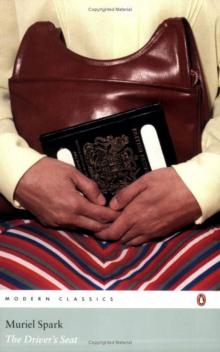 The Driver's Seat
The Driver's Seat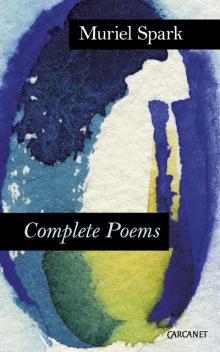 Complete Poems: Muriel Spark
Complete Poems: Muriel Spark Symposium
Symposium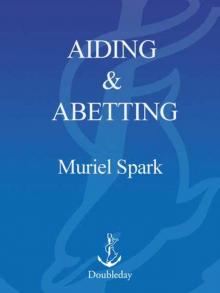 Aiding and Abetting
Aiding and Abetting The Golden Fleece
The Golden Fleece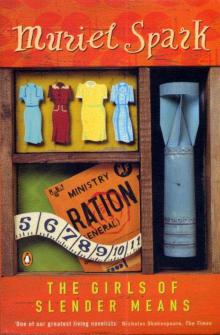 The Girls of Slender Means
The Girls of Slender Means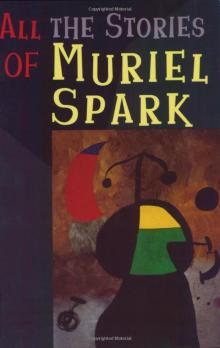 Alice Long’s Dachshunds
Alice Long’s Dachshunds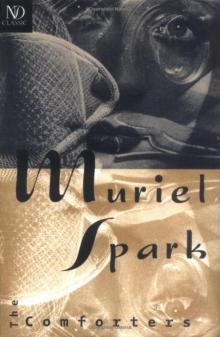 (1954) The Comforters
(1954) The Comforters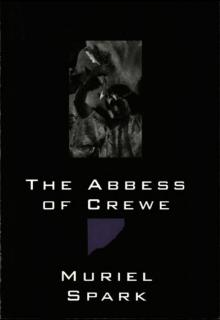 The Abbess of Crewe
The Abbess of Crewe Curriculum Vitae
Curriculum Vitae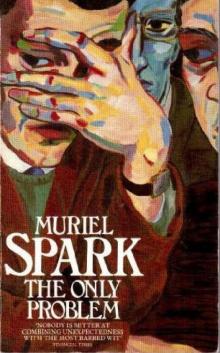 The Only Problem
The Only Problem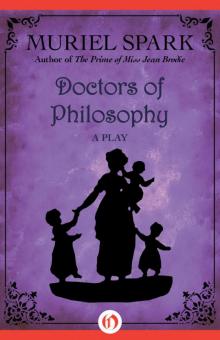 Doctors of Philosophy
Doctors of Philosophy